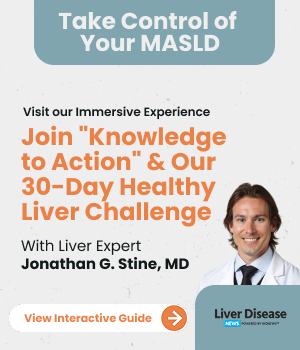EMA committee supports Rezdiffra’s OK for fatty liver disease MASH
A decision on the therapy's approval is expected in August

A committee of the European Medicines Agency (EMA) has granted a positive opinion to Rezdiffra (resmetirom) to treat some people with metabolic dysfunction-associated steatohepatitis (MASH), a serious form of fatty liver disease.
The recommendation from the EMA’s Committee for Medicinal Products for Human Use (CHMP) specifically supports the therapy’s approval for MASH patients with moderate to advanced liver scarring (fibrosis), but no cirrhosis, that is, irreversible liver fibrosis.
The opinion will be reviewed by the European Commission, which has final say over drug approvals in the European Union. The commission isn’t obligated to abide by CHMP’s recommendations, but usually does. A decision is expected in August.
“Resmetirom was the first medication to achieve fibrosis improvement and MASH resolution in a Phase 3 trial, the first medication to receive [U.S. approval] for MASH and [the] positive CHMP opinion represents another historic first for the global MASH community,” Bill Sibold, CEO of Madrigal Pharmaceuticals, the therapy’s developer, said in a company press release.
Results of Rezdiffra testing
The therapy, in combination with diet and exercise, was granted accelerated approval in the U.S. last year to treat MASH patients with moderate to advanced liver fibrosis. Sold as Rezdiffra, resmetirom became the first medicine for MASH approved in the U.S.
Accelerated approval lets a therapy be brought to market based on biomarker data, with full approval requiring additional clinical trial data to confirm its safety and efficacy.
“After years of clinical research and growing appreciation of the burden of MASH on patients and health systems across Europe, we are finally on the cusp of having an approved therapy that targets the underlying disease,” said Jörn M. Schattenberg, MD, a professor at the University of the Saarland in Germany. “Importantly, resmetirom is already included in European clinical practice guidelines, which provide a framework for identifying and monitoring patients with noninvasive tests. If approved, I believe the medication has the potential to transform care for my patients with MASH.”
Formerly nonalcoholic steatohepatitis, or NASH, MASH is a severe form of fatty liver disease wherein the buildup of fat in the liver leads to inflammation and fibrosis, which can set the stage for life-threatening complications such as liver failure or cancer.
“MASH is the fastest growing indication for liver transplantation in Europe, and we believe resmetirom has the potential to address the urgent unmet need for a foundational, liver-directed therapy to treat patients with this serious disease,” Sibold said.
Resmetirom is a daily oral medication that activates thyroid hormone receptor beta (THR-beta), a protein whose reduced activity has been linked with liver scarring in MASH.
CHMP’s positive opinion was based mainly on data from a Phase 3 clinical trial called MAESTRO-NASH (NCT03900429) that tested the therapy against a placebo in more than 1,700 adults with biopsy-confirmed MASH and moderate to advanced liver fibrosis. After a year of treatment, the patients given resmetirom were significantly more likely to see MASH resolution without fibrosis worsening or easing of fibrosis without change in MASH disease activity.
A Phase 3 trial called MAESTRO-NASH OUTCOMES (NCT05500222) is testing resmetirom against a placebo in about 700 people with MASH who have well-compensated cirrhosis, meaning the liver is able to function despite extensive fibrosis. The study hopes to show that resmetirom can reduce the risk of serious events like death or the need for a liver transplant. If the results are positive, Madrigal intends to use the study toward full approval of the therapy in the U.S.








